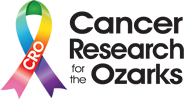AGCT1531
This phase III trial studies how well active surveillance, bleomycin, etoposide, carboplatin or cisplatin work in treating pediatric and adult patients with germ cell tumors. Active surveillance may help doctors to monitor subjects with low risk germ cell tumors after their tumor is removed. Drugs used in chemotherapy, such as bleomycin, carboplatin, etoposide, and cisplatin, work in different ways to stop the growth of tumor cells, either by killing the cells, by stopping them from dividing, or by stopping them from spreading. The trial studies whether carboplatin or cisplatin is the preferred chemotherapy to use in treating germ cell tumors.
AGCT1532
Bleomycin, Etoposide, Cisplatin (BEP) administered 3-weekly x 4 remains standard 1st line chemotherapy for intermediate- and poor-risk metastatic germ cell tumours (GCTs). Cure rates are over 90% for good-risk disease, 85% with intermediate-risk, and about 70% for poor-risk disease. Previous strategies to improve first-line chemotherapy have failed to improve cure rates and were more toxic than BEP. New strategies are needed for patients with intermediate and poor-risk disease. BEP is accelerated by cycling Cisplatin and etoposide 2-weekly instead of 3-weekly. The Australian and New Zealand Urogenital and Prostate Cancer Trials Group (ANZUP) is conducting a trial comparing accelerated BEP with standard BEP. The aim of this study is to determine if accelerated BEP is superior to standard BEP as first-line chemotherapy for intermediate and poor risk metastatic GCTs. Primary arising in testis, ovary, retro-peritoneum, or mediastinum
Alliance A151804
This trial collects research data and samples from patients who experience immunotherapy side effects to store for use in future research studies. Studying research data and samples from patients who experience immunotherapy side effects may help researchers better understand how to predict, prevent, and treat these side effects.
ECOG-ACRIN EAY191
This ComboMATCH patient registration trial is the gateway to a coordinated set of clinical trials to study cancer treatment directed by genetic testing. Patients with solid tumors that have spread to nearby tissue or lymph nodes (locally advanced) or have spread to other places in the body (advanced) and have progressed on at least one line of standard systemic therapy or have no standard treatment that has been shown to prolong overall survival may be candidates for these trials. Genetic tests look at the unique genetic material (genes) of patients' tumor cells. Patients with some genetic changes or abnormalities (mutations) may benefit from treatment that targets that particular genetic mutation. ComboMATCH is designed to match patients to a treatment that may work to control their tumor and may help doctors plan better treatment for patients with locally advanced or advanced solid tumors.
NCI DCP-001
Use of a Clinical Trial Screening Tool to Address Cancer Health Disparities in the NCI Community Oncology Research Program (NCORP)
NCI PDM9846
This research trial collects and stores tissue and blood samples from patients with cancer. Collecting and storing samples of tissue and blood from patients with cancer to study in the laboratory may help scientists create new and better models to learn about cancer and to test new cancer drugs.
NRG-CC005
This trial examines colorectal cancer incidence in participants with 1 to 2 non-advanced adenomas randomized to surveillance colonoscopy at 10 years compared to participants randomized to surveillance colonoscopy at 5 and 10 years.
NRG-GY022 – OPEN to male participants only
This trial studies how well iohexol works in helping doctors calculate the dose of carboplatin given to patients with cancer. Drugs used in chemotherapy, such as carboplatin, work in different ways to stop the growth of tumor cells, either by killing the cells, by stopping them from dividing, or by stopping them from spreading. Understanding how to best calculate the dose of carboplatin given to patients with cancer may help doctors learn how to improve the use of carboplatin in the future.
NRG- HN014
This phase III trial compares the effect of adding cemiplimab to standard therapy (surgery with or without radiation) versus standard therapy alone in treating patients with stage III/IV squamous cell skin cancer that is able to be removed by surgery (resectable) and that may have come back after a period of improvement (recurrent). The usual treatment for patients with resectable squamous cell skin cancer is the removal of the cancerous tissue (surgery) with or without radiation, which uses high energy x-rays, particles, or radioactive seeds to kill cancer cells and shrink tumors. Immunotherapy with monoclonal antibodies, such as cemiplimab, may help the body's immune system attack the cancer, and may interfere with the ability of tumor cells to grow and spread. Cemiplimab has been approved for the treatment of skin cancer that has spread or that cannot be removed by surgery, but it has not been approved for the treatment of skin cancer than can be removed by surgery. Adding cemiplimab to the usual treatment of surgery with or without radiation may be more effective in treating patients with stage III/IV resectable squamous cell skin cancer than the usual treatment alone.
P10323 Moonshot Biobank
This trial collects multiple tissue and blood samples, along with medical information, from cancer patients. The "Cancer Moonshot Biobank" is a longitudinal study. This means it collects and stores samples and information over time, throughout the course of a patient's cancer treatment. By looking at samples and information collected from the same people over time, researchers hope to better understand how cancer changes over time and over the course of medical treatments.
URCC-18007
This phase III trial studies how well bupropion works in reducing cancer related fatigue in cancer survivors. Bupropion is a drug that is used to treat depression, as well as to help people quit smoking. Cancer and its treatment can cause fatigue. Giving bupropion may improve cancer related fatigue in cancer survivors.
